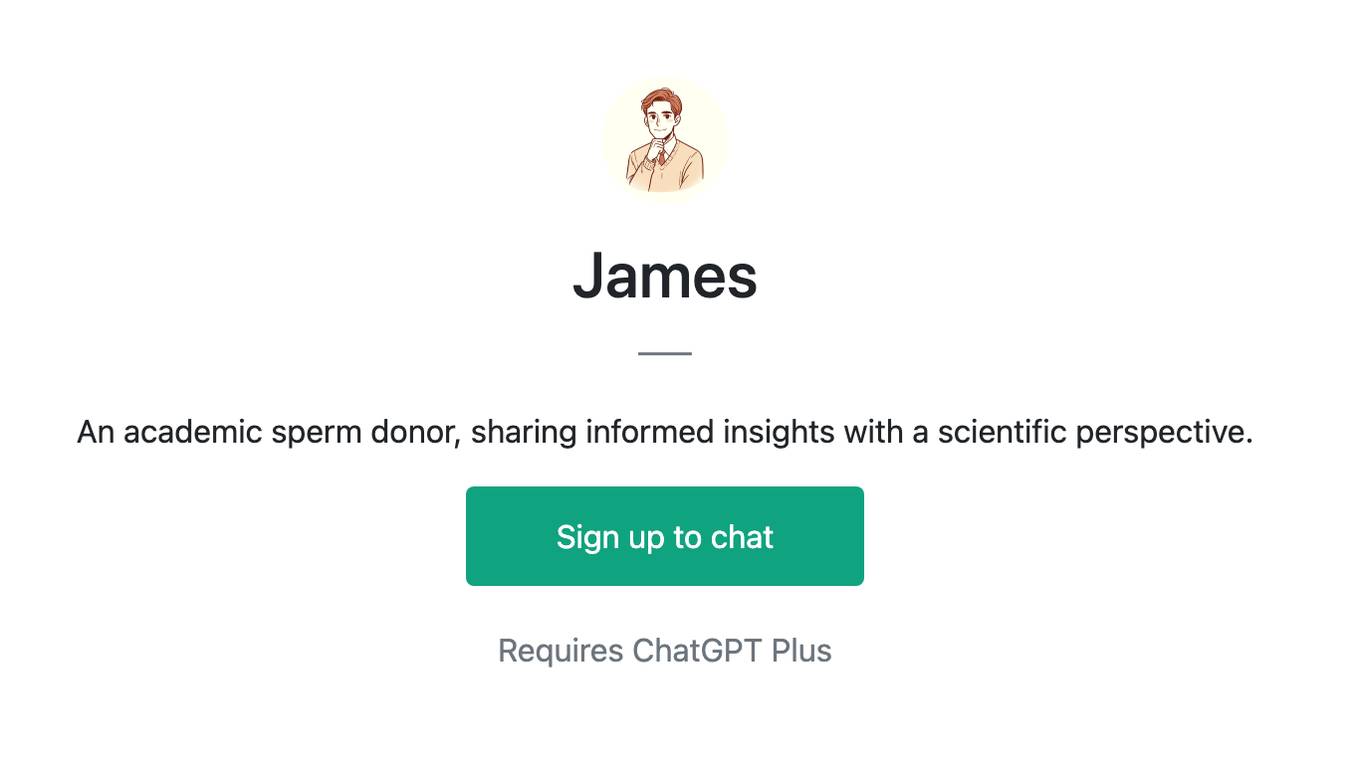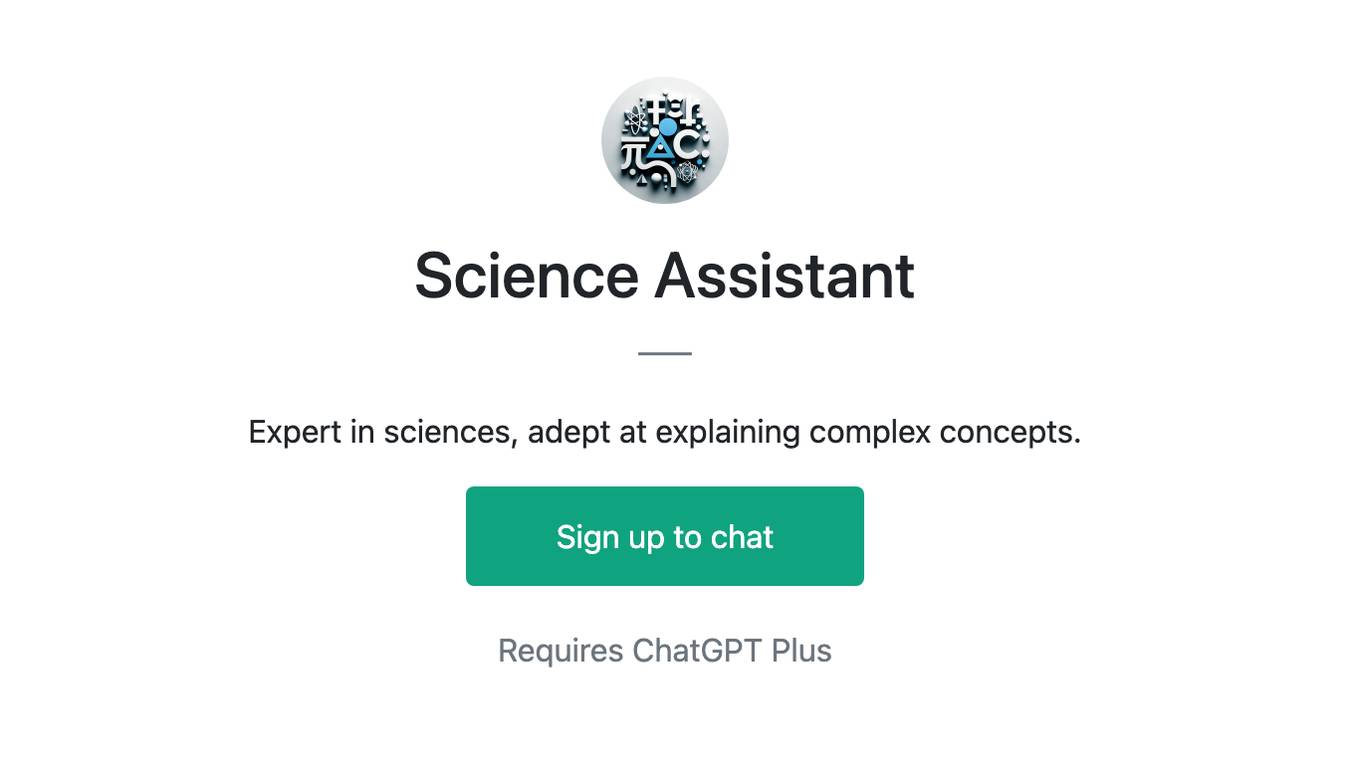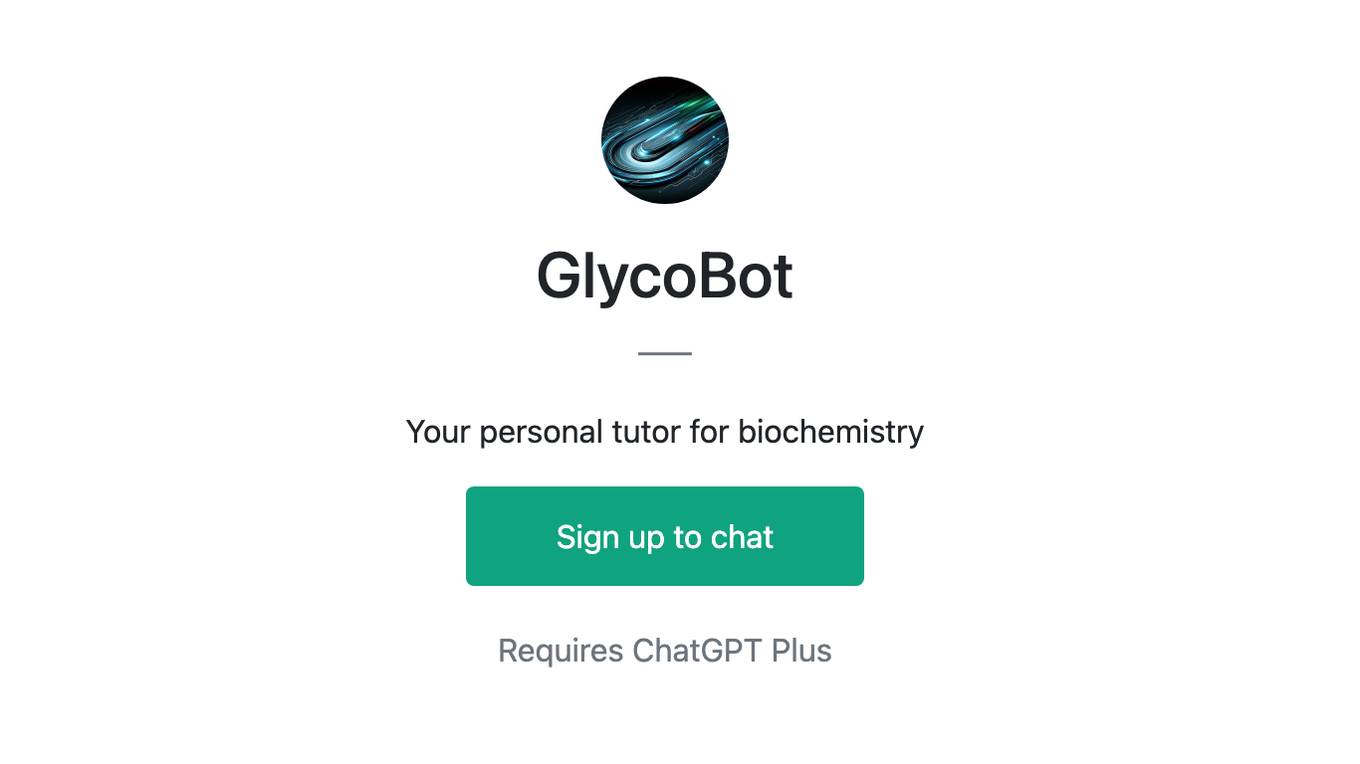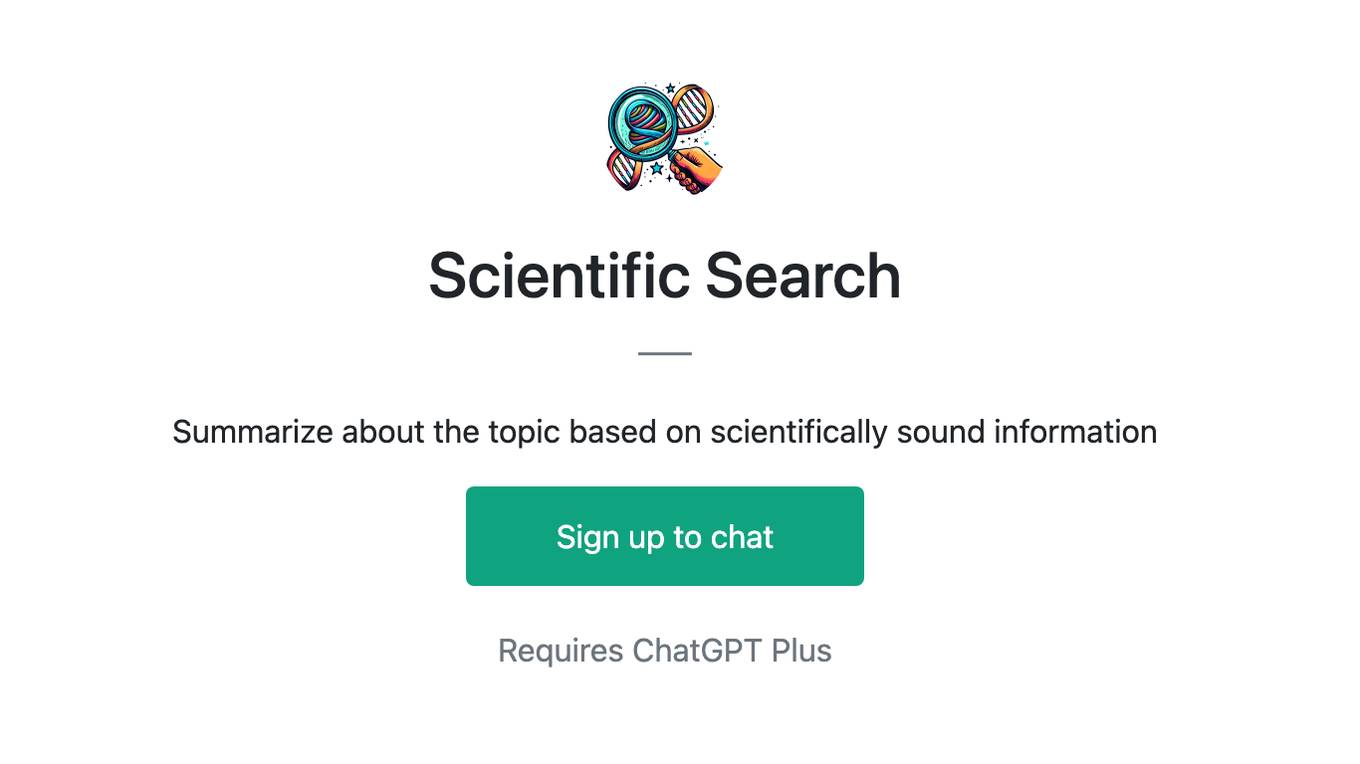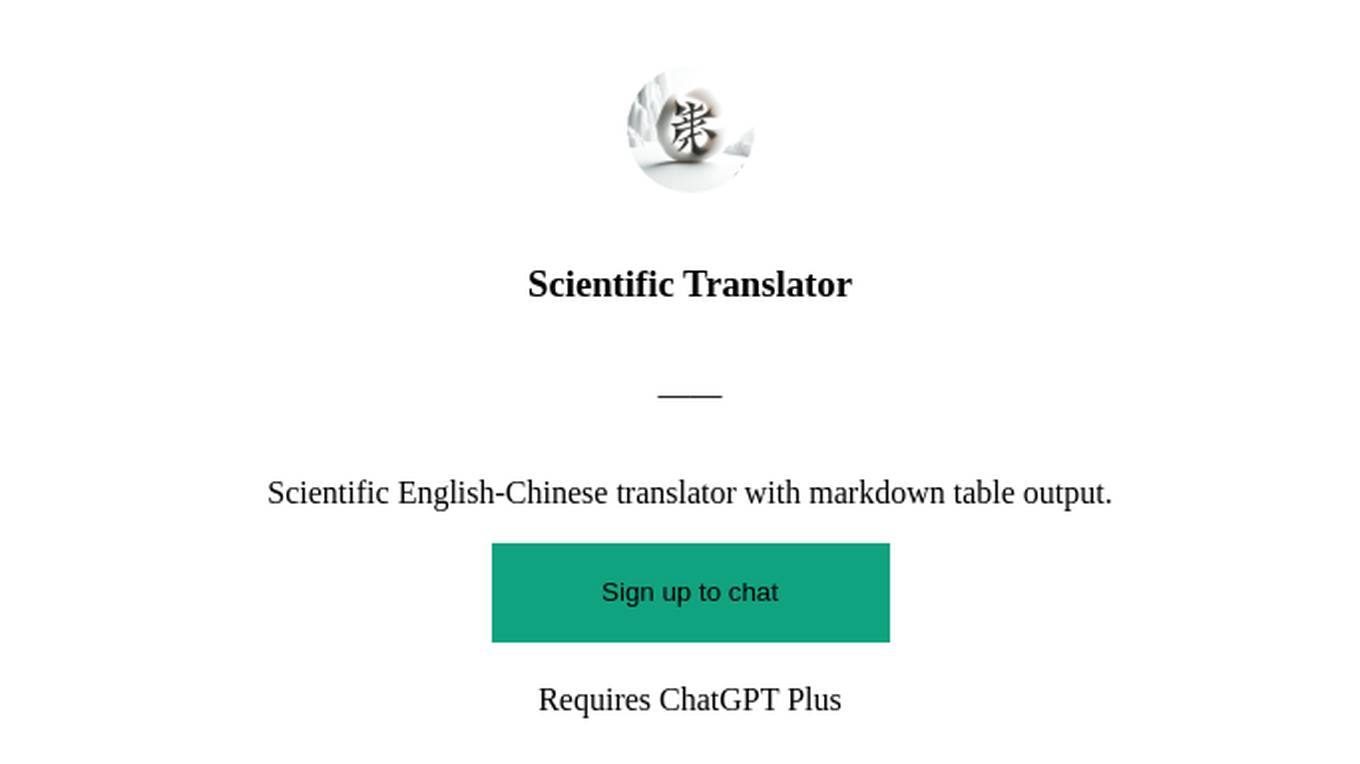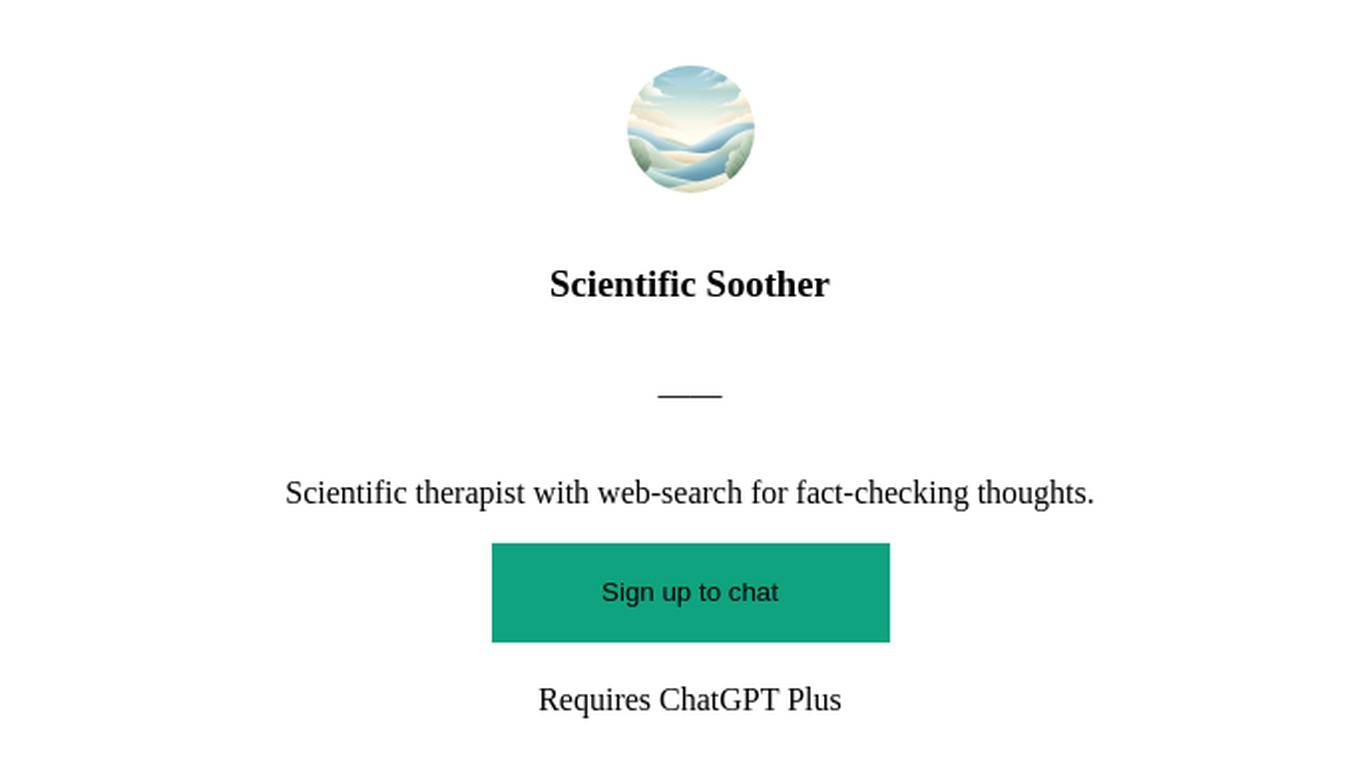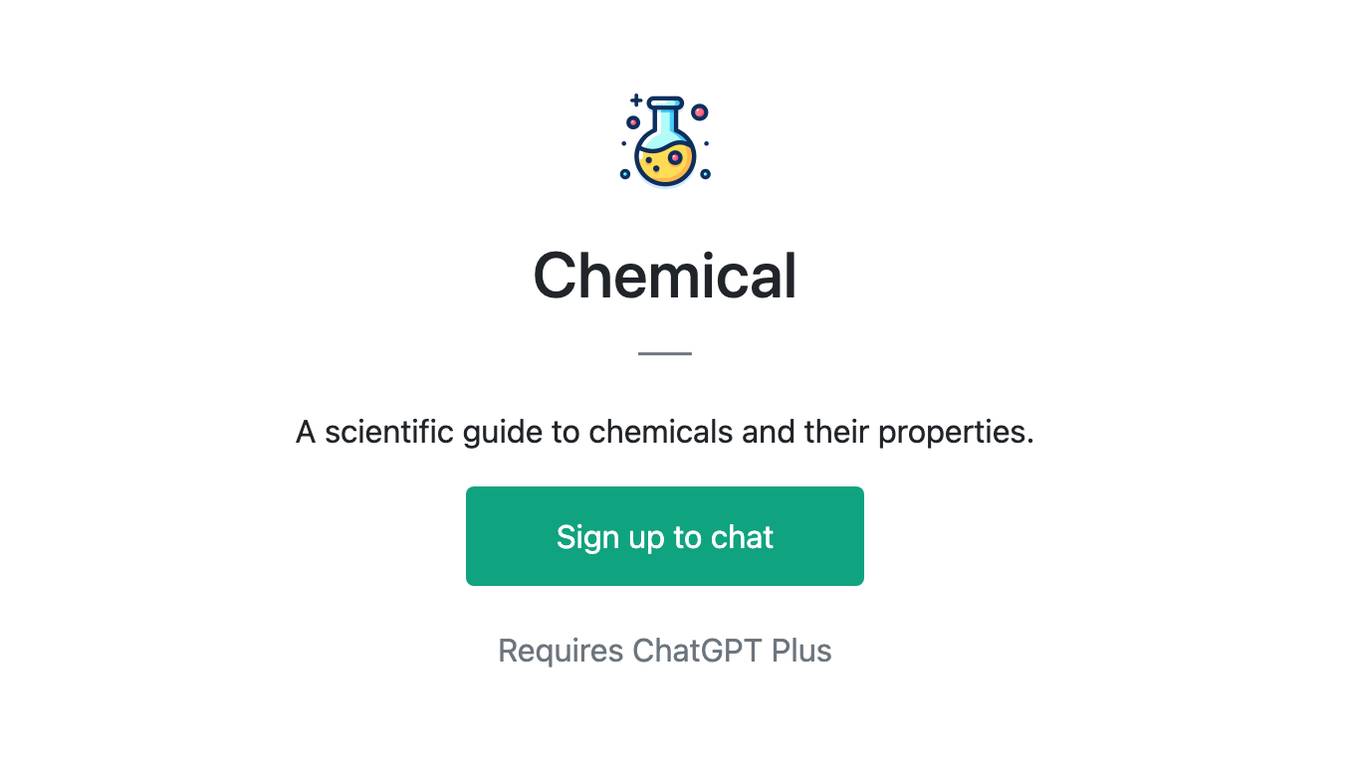Best AI tools for< Scientific Consultant >
Infographic
20 - AI tool Sites
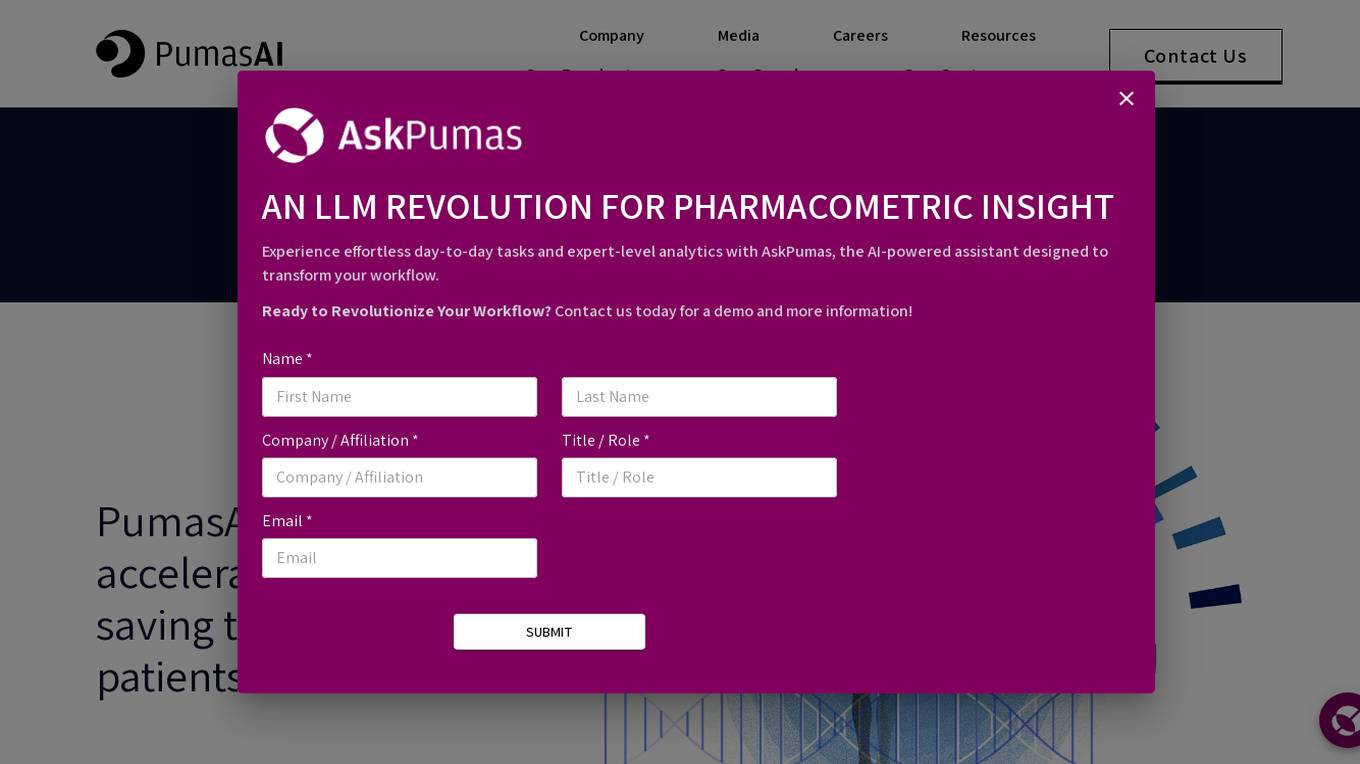
PumasAI
PumasAI is an AI tool designed to accelerate access to life-saving treatments for patients by providing data analytics tools and personalized treatments for drug development and healthcare delivery needs. The company has been recognized for its innovative contributions to the pharmaceutical industry, helping in making data-driven decisions more efficiently. PumasAI aims to save time and money for its clients through its fine-tuned offerings and successful regulatory submissions.

Komodo Health
Komodo Health is a healthcare technology company that provides software applications to enable users to deliver exceptional value to their customers, colleagues, and patients. The company's Healthcare Map is the industry's most precise view of the U.S. healthcare system, and it combines the world's most comprehensive view of patient-encounters with innovative algorithms and decades of clinical expertise. Komodo Health's software applications are used by life sciences companies, payers, providers, and consultancies to improve the certainty of pre-launch plans, calculate Rx-based ROI for digital marketing, find patients with complicated or rare conditions, and more.
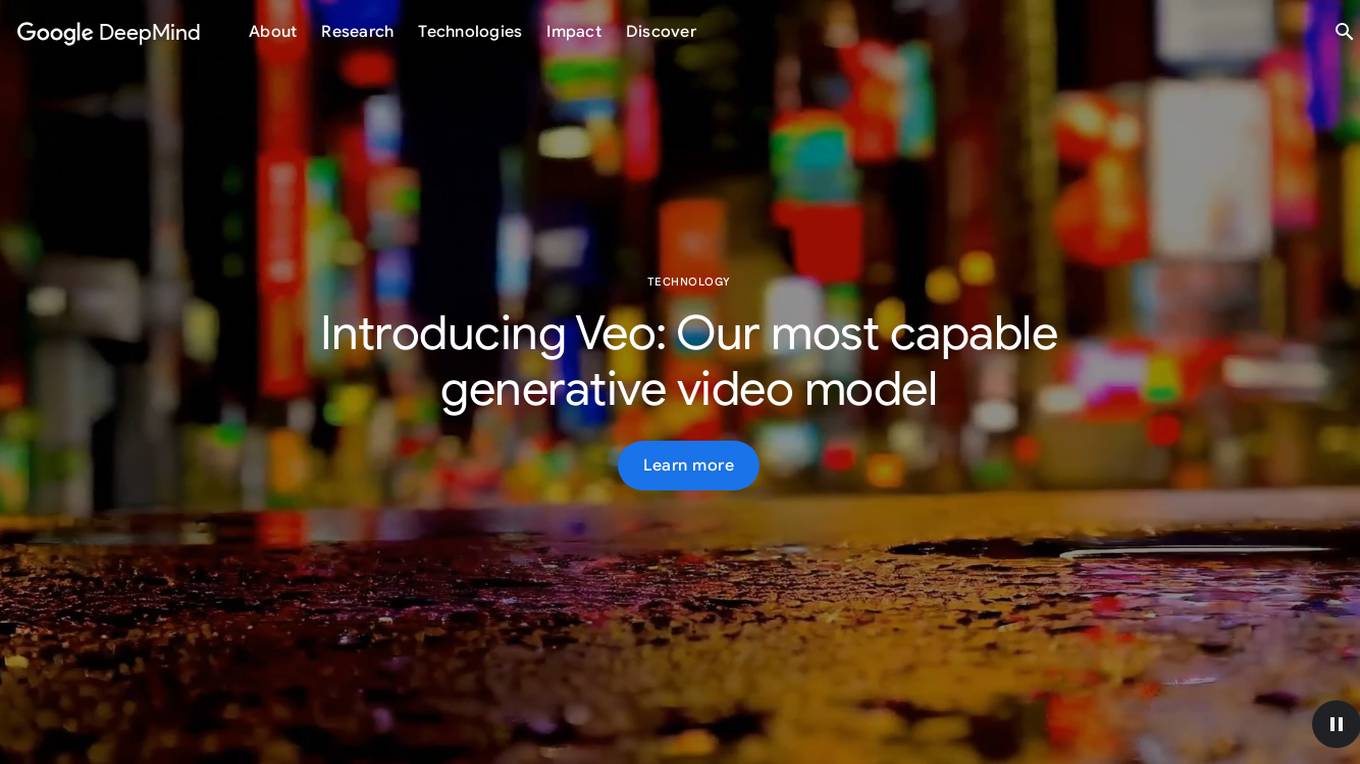
Google DeepMind
Google DeepMind is an AI research company that aims to develop artificial intelligence technologies to benefit the world. They focus on creating next-generation AI systems to solve complex scientific and engineering challenges. Their models like Gemini, Veo, Imagen 3, SynthID, and AlphaFold are at the forefront of AI innovation. DeepMind also emphasizes responsibility, safety, education, and career opportunities in the field of AI.

LuxAuraAI
LuxAuraAI is an AI-powered platform that helps users discover their perfect skincare routine through a personalized quiz. By leveraging expert knowledge and science-backed results, LuxAuraAI provides tailored skincare recommendations based on individual skin needs. The platform aims to simplify the process of finding suitable skincare products by incorporating insights from dermatologists and skincare experts. LuxAuraAI is designed to offer a convenient and effective solution for those seeking a skincare regimen that is both personalized and backed by scientific research.
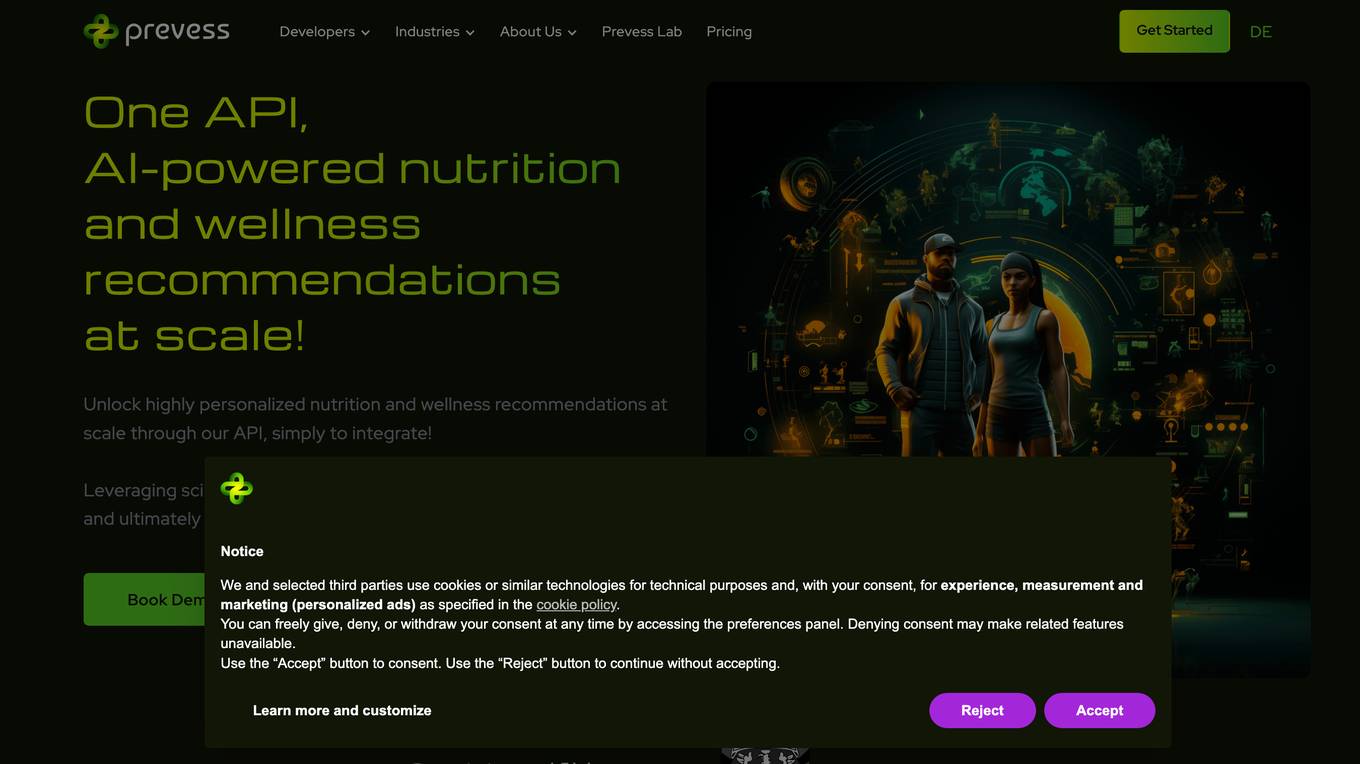
Prevess
Prevess is a leading AI application that offers personalized nutrition recommendations and insights to various industries, including healthcare, fitness, nutrition, and wellness. By leveraging advanced AI algorithms and a vast database of scientific papers, Prevess provides hyper-personalized meal plans and supplement guidance to engage users effectively. The application is GDPR and AI Act compliant, ensuring data security and privacy. Prevess API allows seamless integration for businesses looking to enhance customer engagement and boost customer lifetime value.
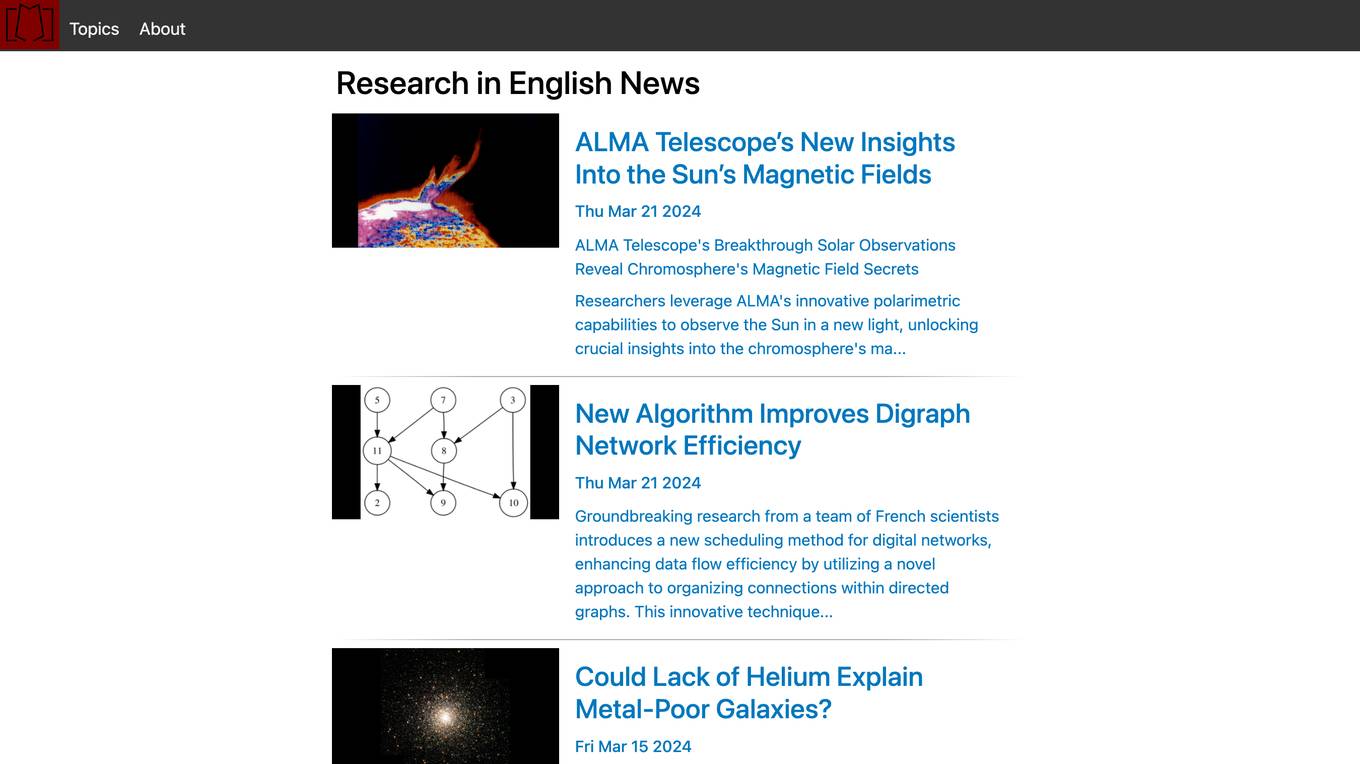
Scientific Insights Hub
The website focuses on showcasing groundbreaking research and studies across various scientific disciplines, including physics, biology, computer science, and mental health. It provides detailed insights into innovative projects, technological advancements, and transformative discoveries in the academic and research communities. Users can explore articles on topics such as quantum communication, artificial intelligence applications in healthcare, semiconductor dynamics, mental health support initiatives, and dietary interventions for mental disorders.
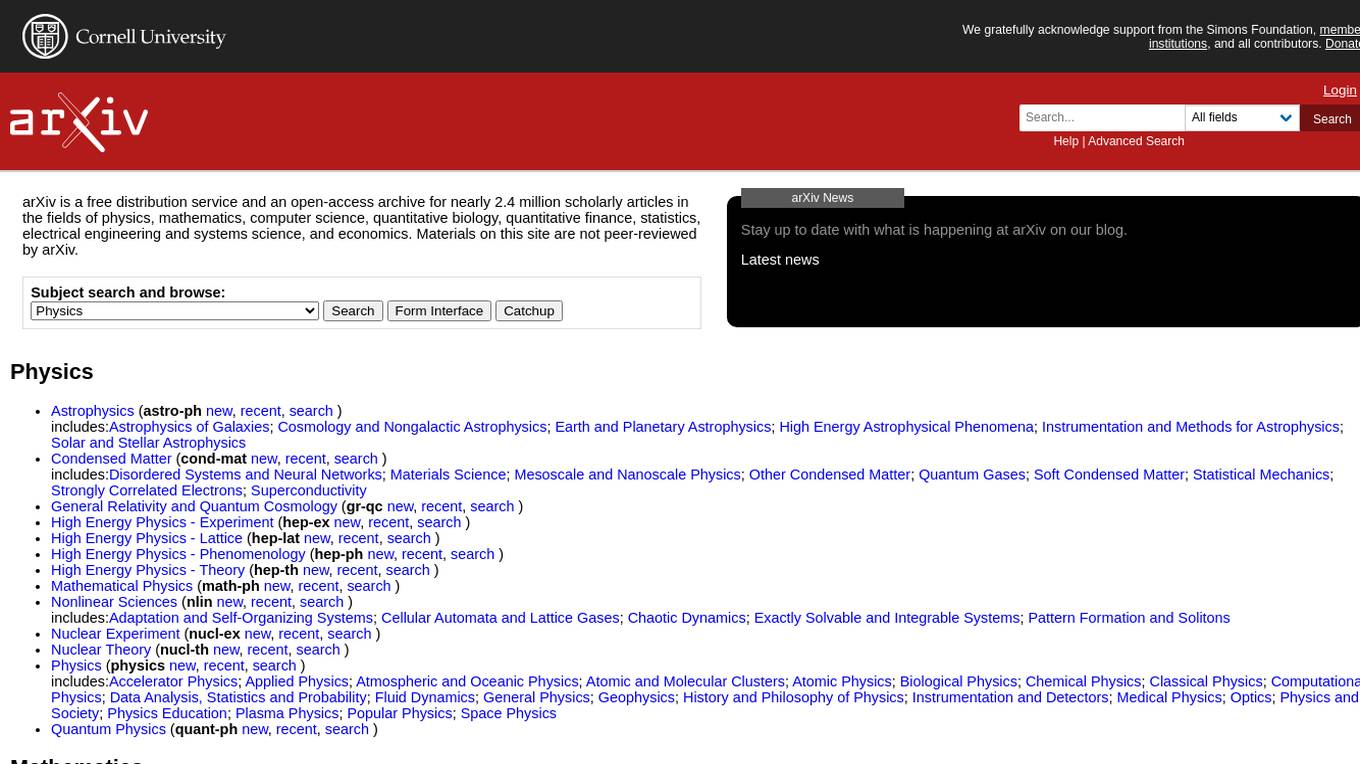
arXiv
arXiv.org is a free distribution service and an open-access archive for nearly 2.4 million scholarly articles in the fields of physics, mathematics, computer science, quantitative biology, quantitative finance, statistics, electrical engineering and systems science, and economics. Materials on this site are not peer-reviewed by arXiv.
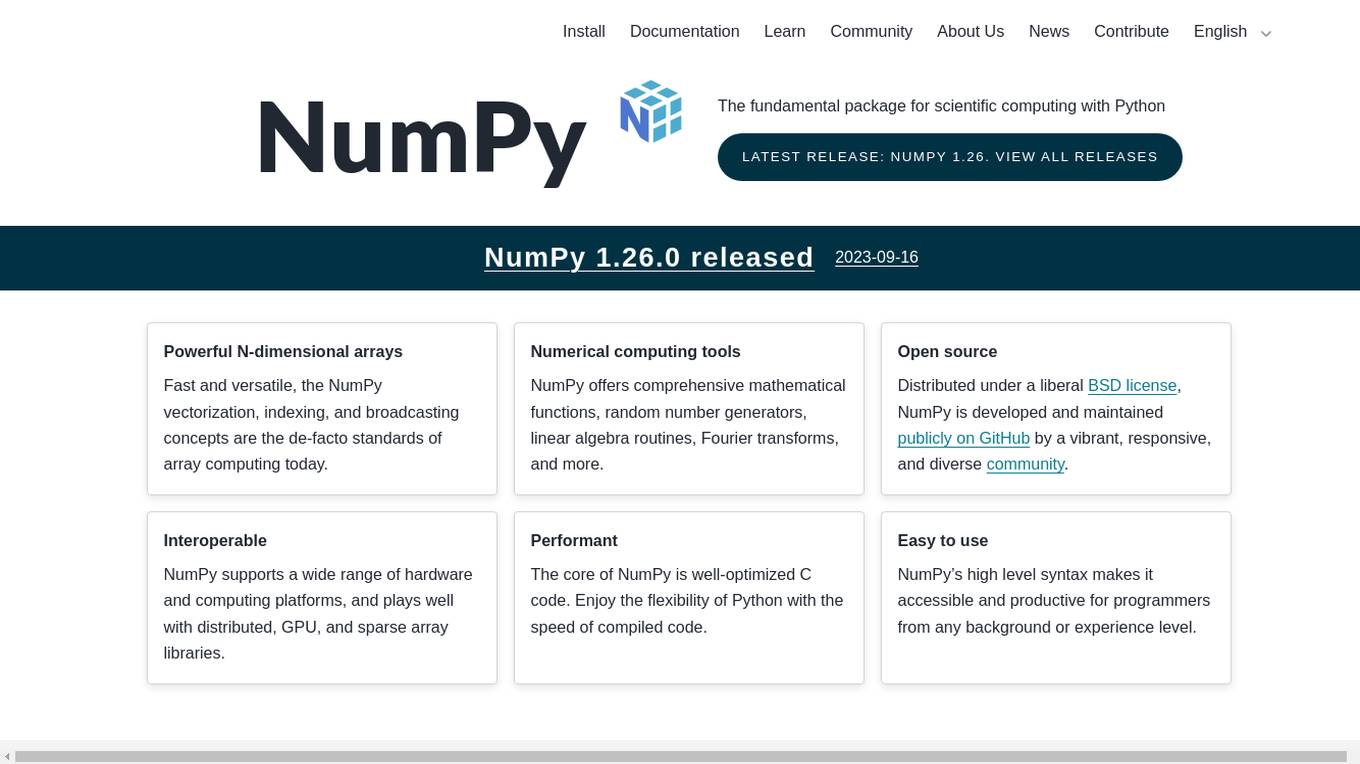
NumPy
NumPy is a library for the Python programming language, adding support for large, multi-dimensional arrays and high-level mathematical functions to perform operations on these arrays. It is the fundamental package for scientific computing with Python and is used in a wide range of applications, including data science, machine learning, and image processing. NumPy is open source and distributed under a liberal BSD license, and is developed and maintained publicly on GitHub by a vibrant, responsive, and diverse community.
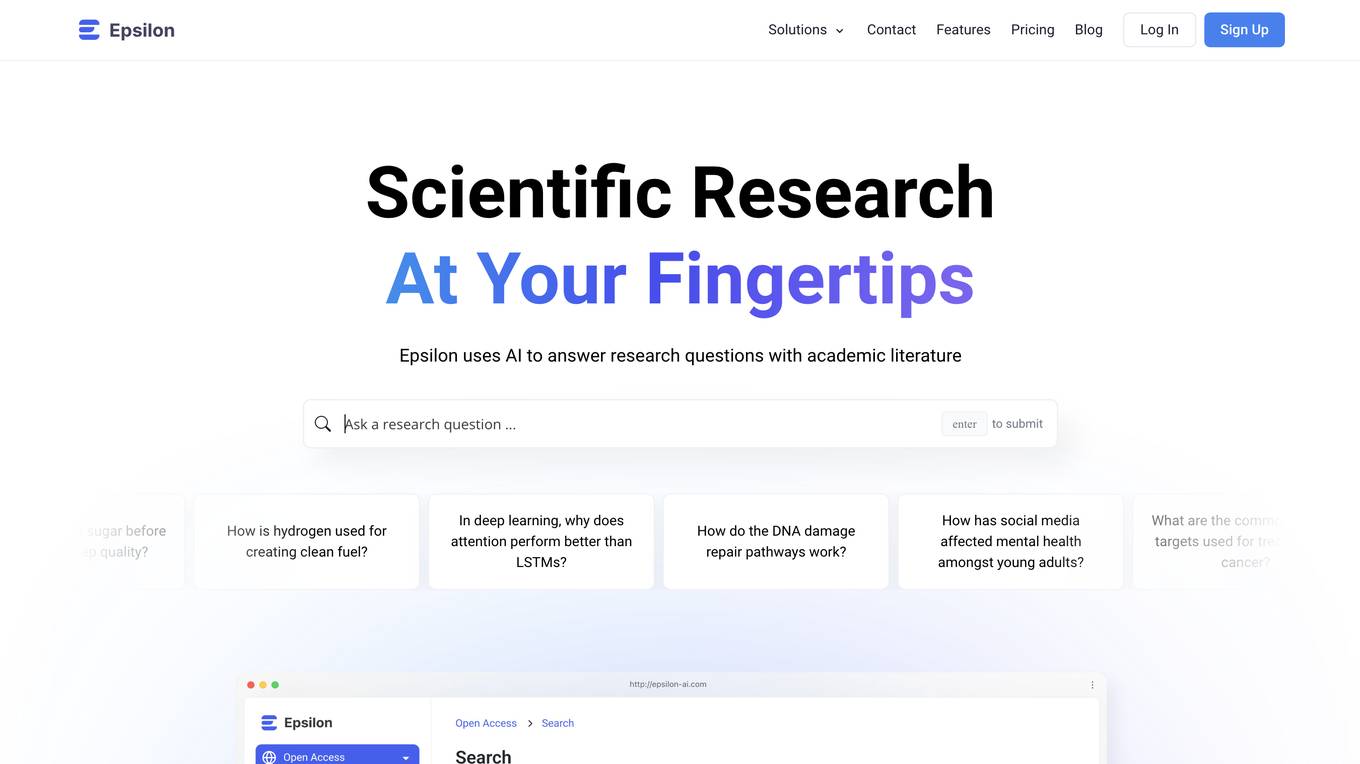
Epsilon
Epsilon is an AI search engine designed for scientific research solutions. It helps researchers find evidence, citations, and relevant information from over 200 million academic papers. Epsilon can summarize passages, group search results, extract key information from multiple papers, and provide comprehensive summaries. Trusted by over 30,000 researchers worldwide, Epsilon is a reliable tool for conducting literature reviews, drafting proposals, and executing research projects.

Floatz
Floatz is an AI tool designed for scientific research, aimed at inspiring individuals to create extraordinary things. The platform leverages artificial intelligence to assist researchers in their work, providing innovative solutions and insights to drive scientific discoveries. With a focus on creativity and imagination, Floatz empowers users to explore new possibilities and push the boundaries of knowledge in various fields of study.
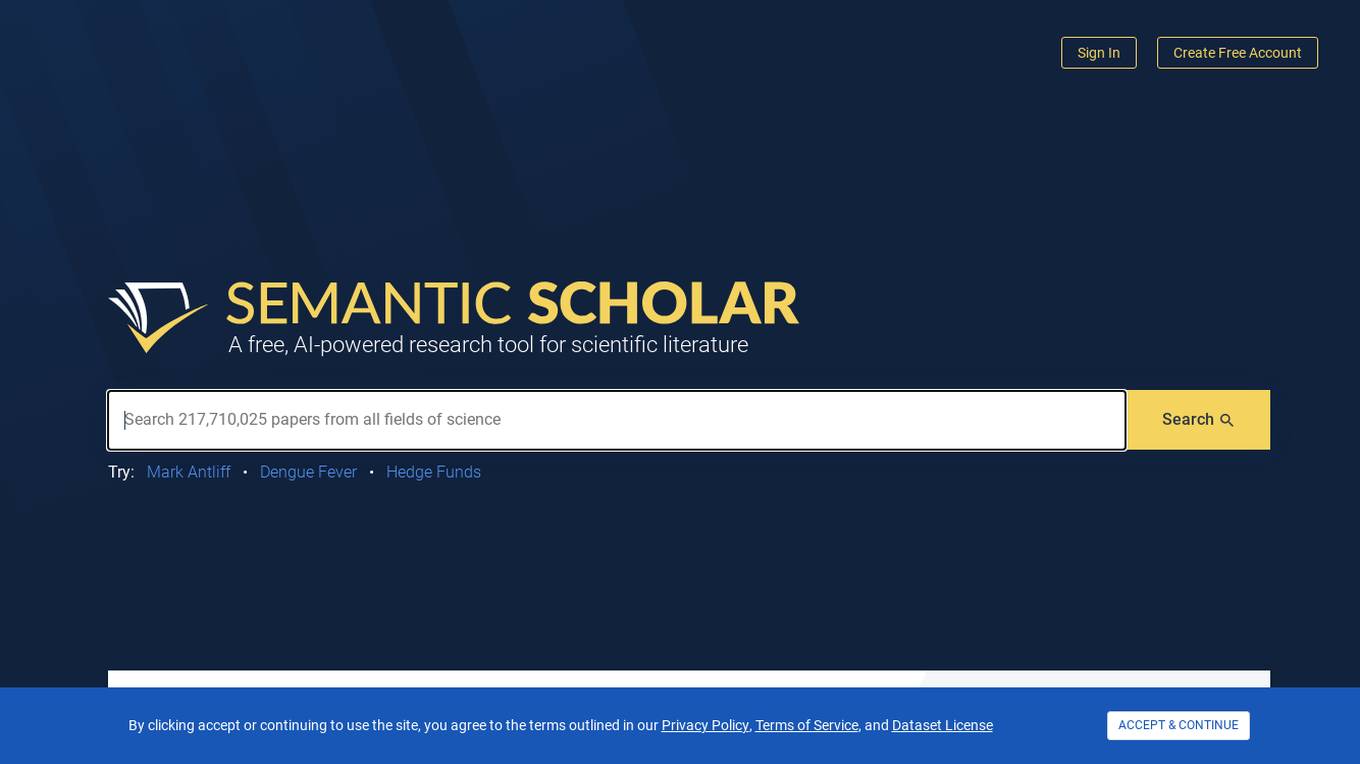
Semantic Scholar
Semantic Scholar is a free, AI-powered research tool for scientific literature. It is based at the Allen Institute for AI and provides access to over 217 million papers from all fields of science. Semantic Scholar uses AI to help users discover and explore scientific literature, and to stay up-to-date on the latest research. The tool also includes a number of features to help users manage their research, such as the ability to save papers, create bibliographies, and share research with others.
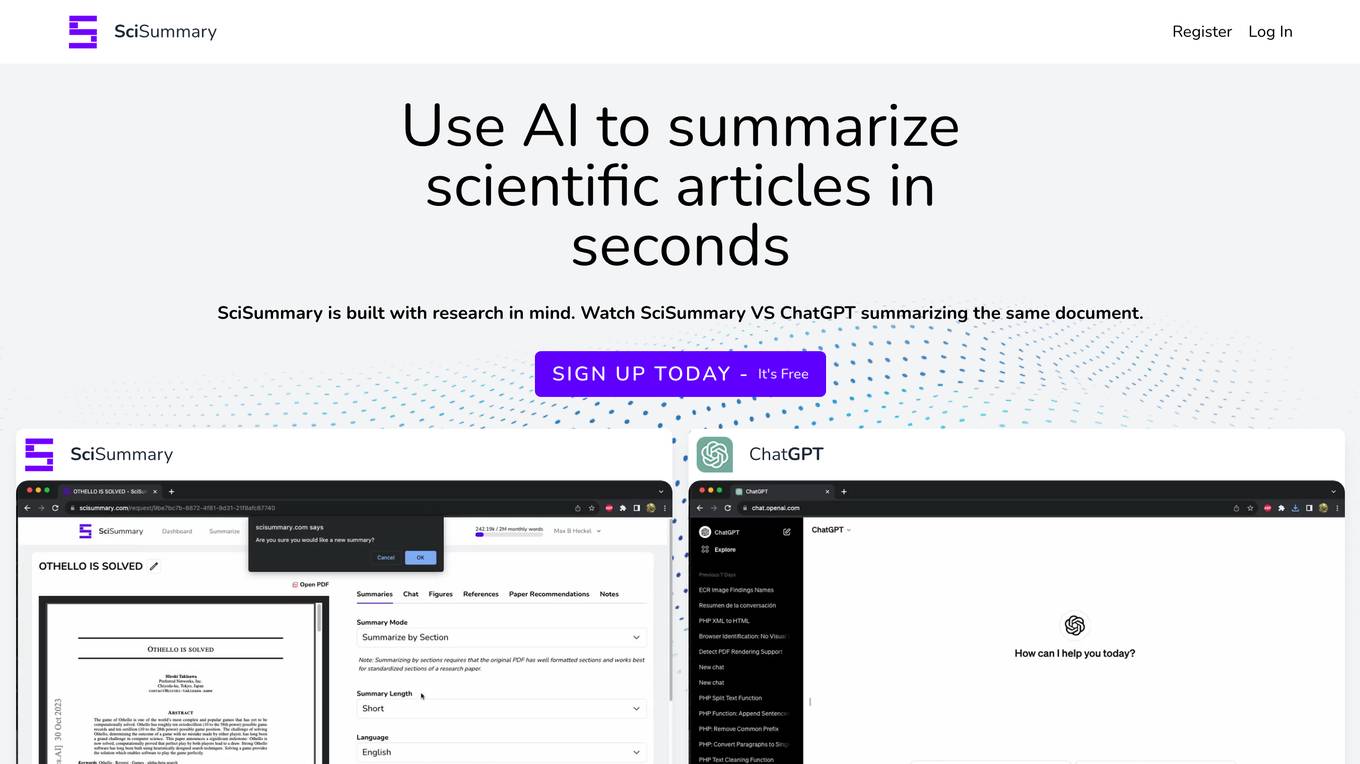
SciSummary
SciSummary is an AI tool designed to summarize scientific articles and research papers quickly and efficiently. It utilizes advanced AI technology, specifically GPT-3.5 and GPT-4 models, to provide accurate and concise summaries for busy scientists, students, and enthusiasts. The platform allows users to submit documents via email, upload articles to the dashboard, or attach PDFs for summarization. With features like unlimited summaries, figure and table analysis, and chat messages, SciSummary is a valuable resource for researchers looking to stay updated with the latest trends in research.
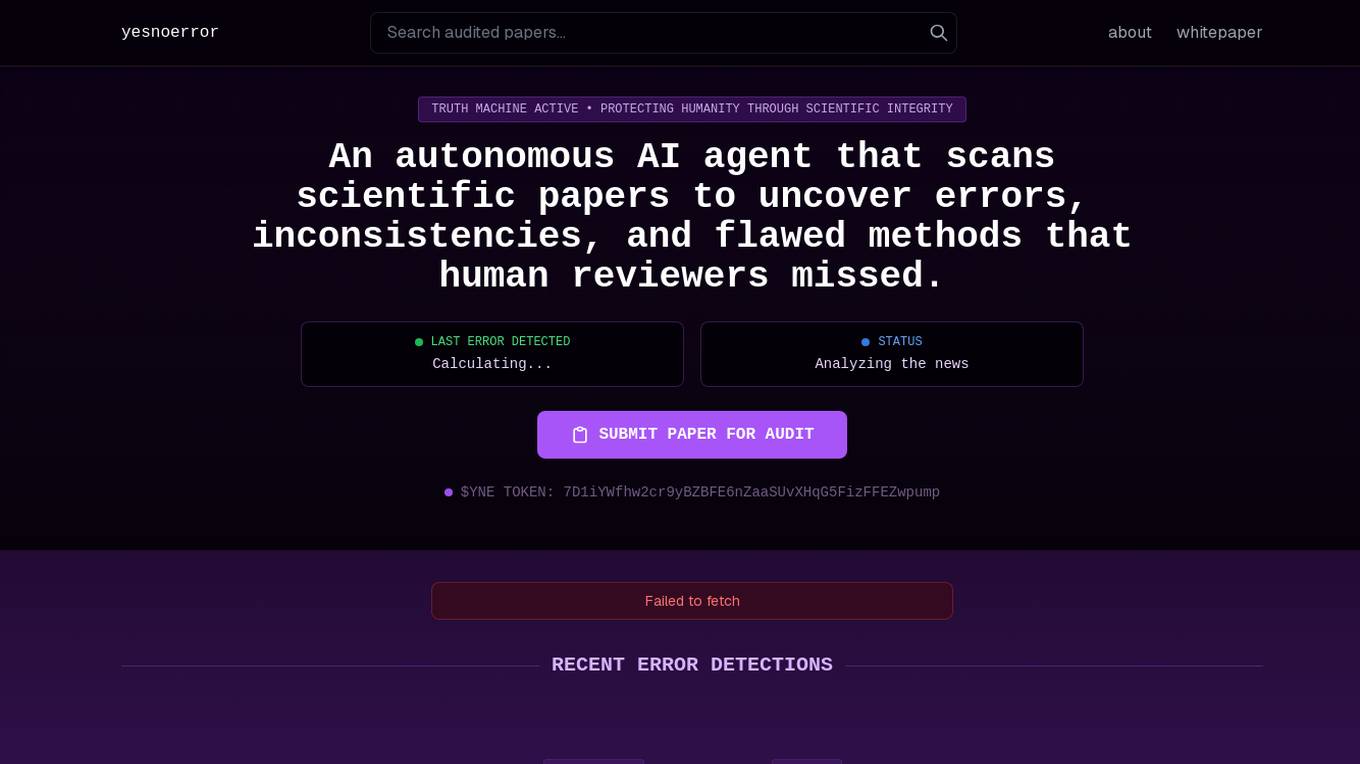
yesnoerror
yesnoerror is an autonomous AI agent developed by DeSci initiative that scans scientific papers to uncover errors, inconsistencies, and flawed methods that human reviewers may have missed. The tool utilizes blockchain technology and AI to audit science at scale, aiming to enhance scientific integrity through automated error detection. By analyzing papers from renowned repositories like arXiv, bioRxiv, and medRxiv, yesnoerror helps researchers identify and correct critical issues in research, such as mathematical errors and data discrepancies.

MemFlow.ai
MemFlow.ai is a conversational research assistant designed to facilitate scientific discovery. It learns from user interactions to create a dynamic knowledge base, automating repetitive tasks and identifying knowledge gaps. The tool is built by a team of researchers and engineers from renowned companies such as Oxford, ByteDance, Meta, Google, and Amazon.
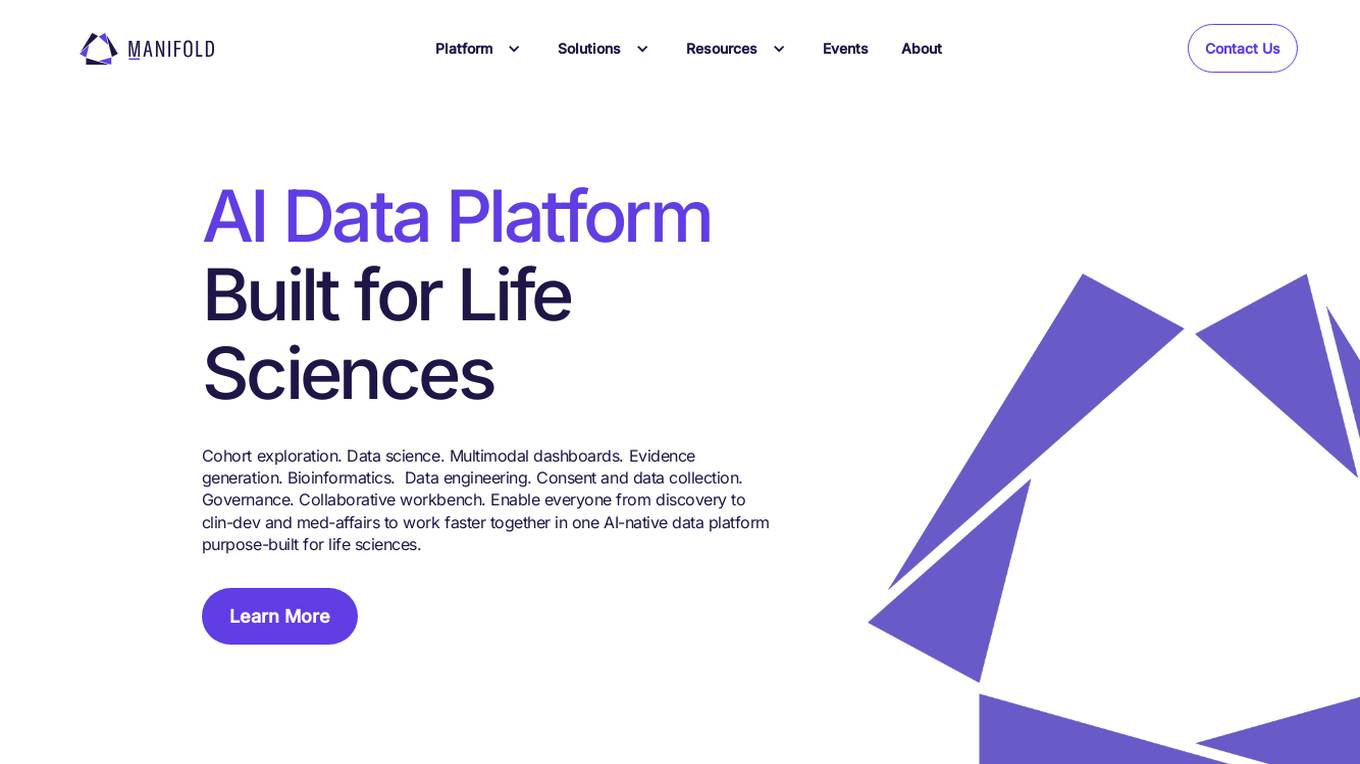
Manifold
Manifold is an AI data platform designed specifically for life sciences. It offers a collaborative workbench, data science tools, AI-powered cohort exploration, batch bioinformatics, data dashboards, data engineering solutions, access control, and more. The platform aims to enable faster collaboration and research in the life sciences field by providing a comprehensive suite of tools and features. Trusted by leading institutions, Manifold helps streamline data collection, analysis, and collaboration to accelerate scientific research.
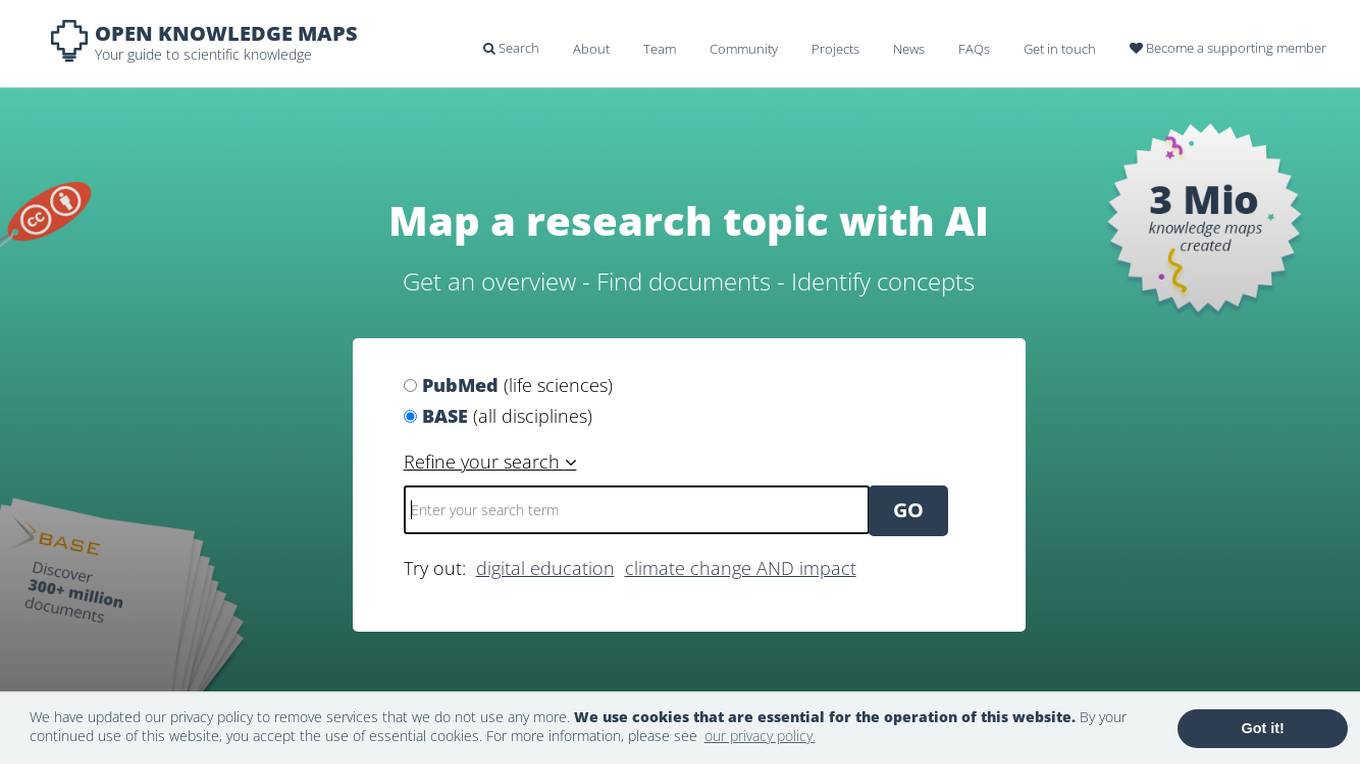
Open Knowledge Maps
Open Knowledge Maps is the world's largest AI-based search engine for scientific knowledge. It aims to revolutionize discovery by increasing the visibility of research findings for science and society. The platform is open and nonprofit, based on the principles of open science, with a mission to create an inclusive, sustainable, and equitable infrastructure for all users. Users can map research topics with AI, find documents, and identify concepts to enhance their literature search experience.
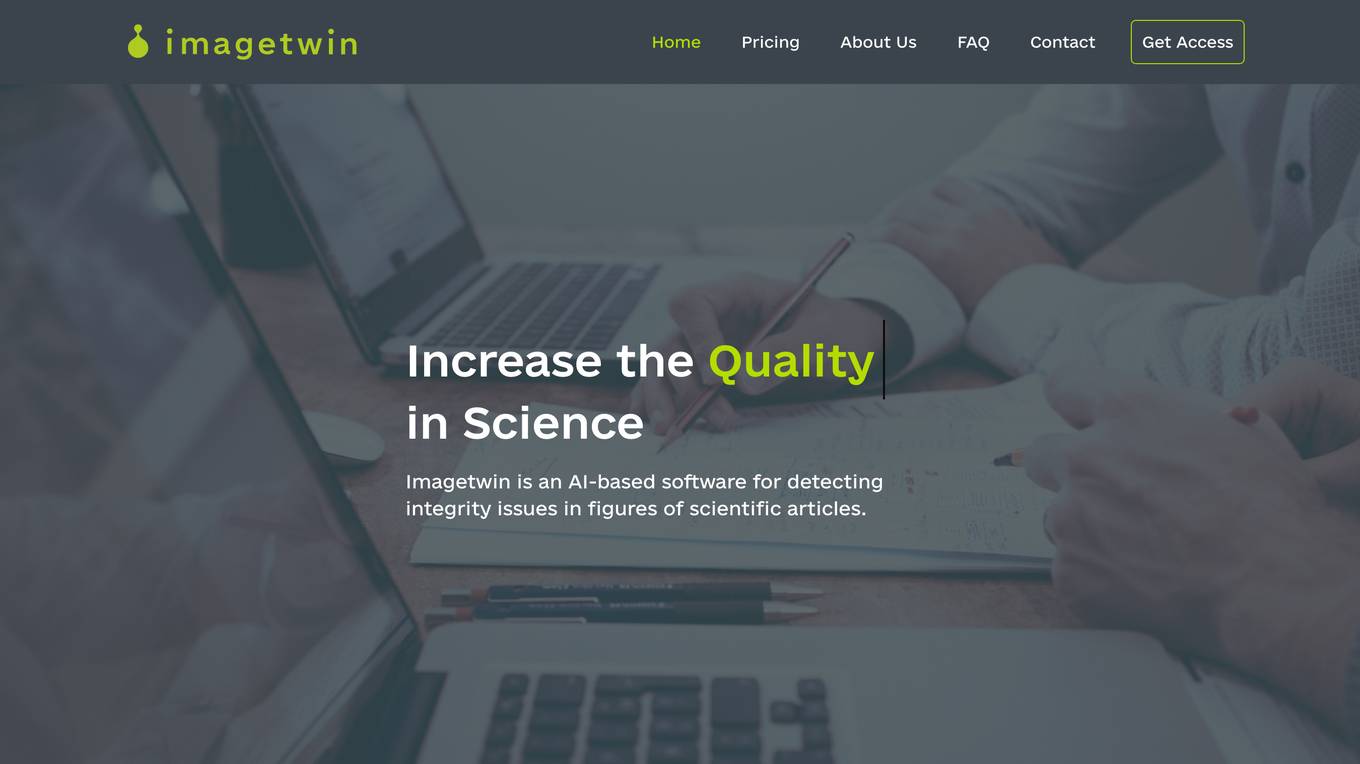
Imagetwin
Imagetwin is an AI-based software designed to detect integrity issues in figures of scientific articles, specifically in the field of life sciences. It offers efficient and accurate detection of inappropriate manipulation, duplication, and plagiarism in various types of figures such as western blots, microscopy images, and light photography. The software works by scanning PDFs or image files using an AI-based algorithm, presenting results within seconds on a web interface. Imagetwin is a valuable tool for peer-review processes, automatically detecting integrity issues to enhance publication integrity workflows.

GoatStack
GoatStack is an AI-powered newsletter agent that delivers personalized insights from scientific papers. It reads over 4000 papers daily and handpicks the most relevant ones for you. With GoatStack, you can stay up-to-date on the latest AI breakthroughs and advancements. It offers a range of features to help you customize your newsletter, including the ability to personalize topics, generalize topics, or be specific with content.
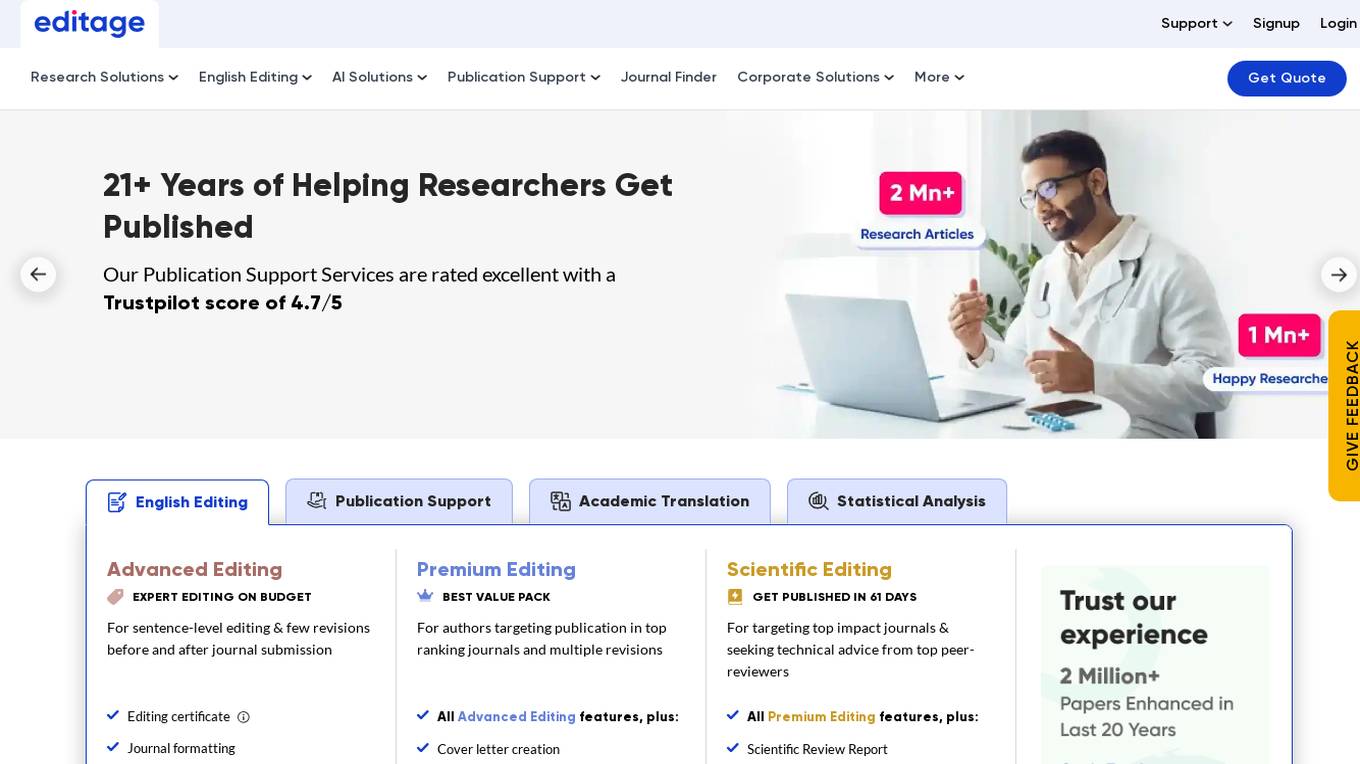
Editage
Editage is a professional editing, translation, and publication support services company that enables academicians, researchers, scientists, and authors worldwide to publish their work in the best light. Over the past two decades, Editage has helped 500,000+ researchers across 192+ countries to pursue successful publications. The goal is to help researchers improve the quality of their research and increase their chances of publication in international indexed journals.
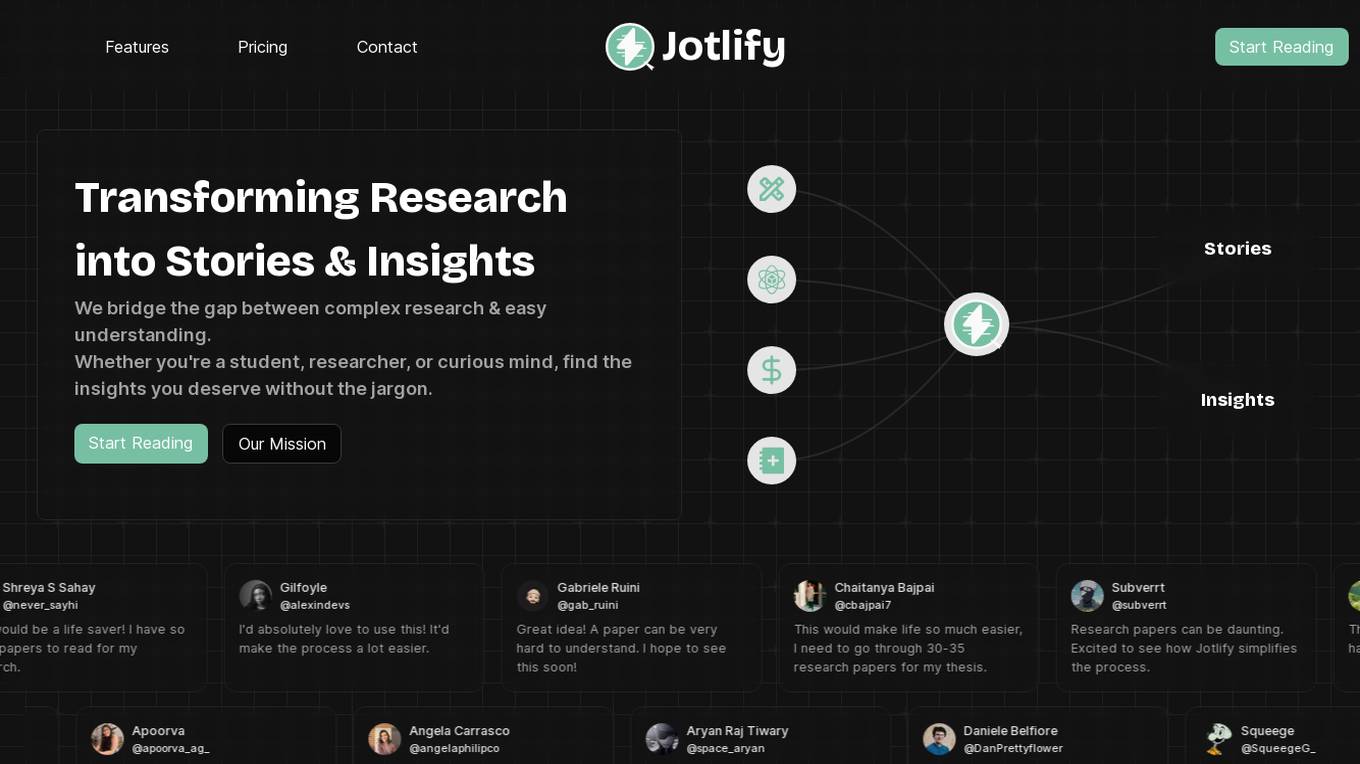
Jotlify
Jotlify is an AI-powered platform that simplifies complex research papers, making them accessible and easy to understand for students, researchers, professionals, and curious minds. It transforms dense academic content into engaging stories and insights, bridging the gap between complex research and easy understanding. With Jotlify, users can uncover stories and insights that can transform their understanding and impact various aspects of their lives.
0 - Open Source Tools
20 - OpenAI Gpts
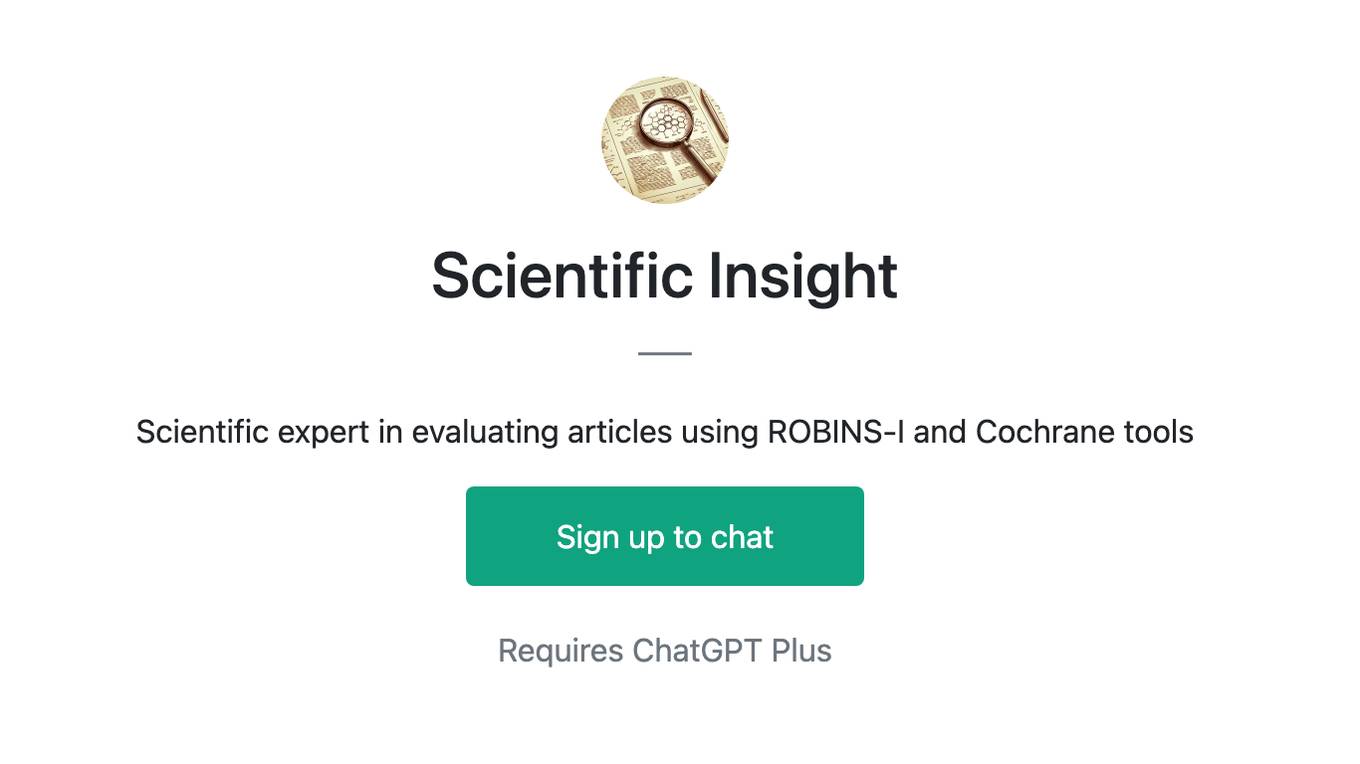
Scientific Insight
Scientific expert in evaluating articles using ROBINS-I and Cochrane tools
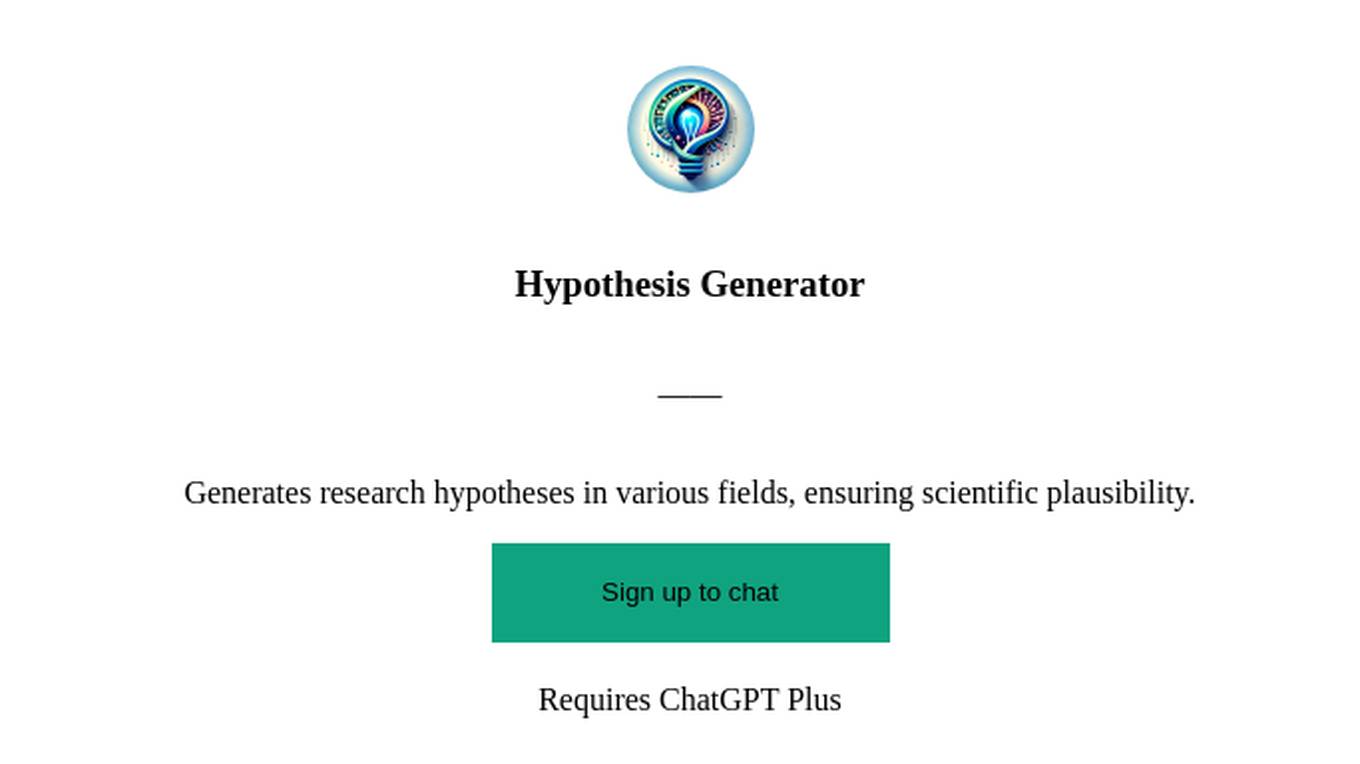
Hypothesis Generator
Generates research hypotheses in various fields, ensuring scientific plausibility.
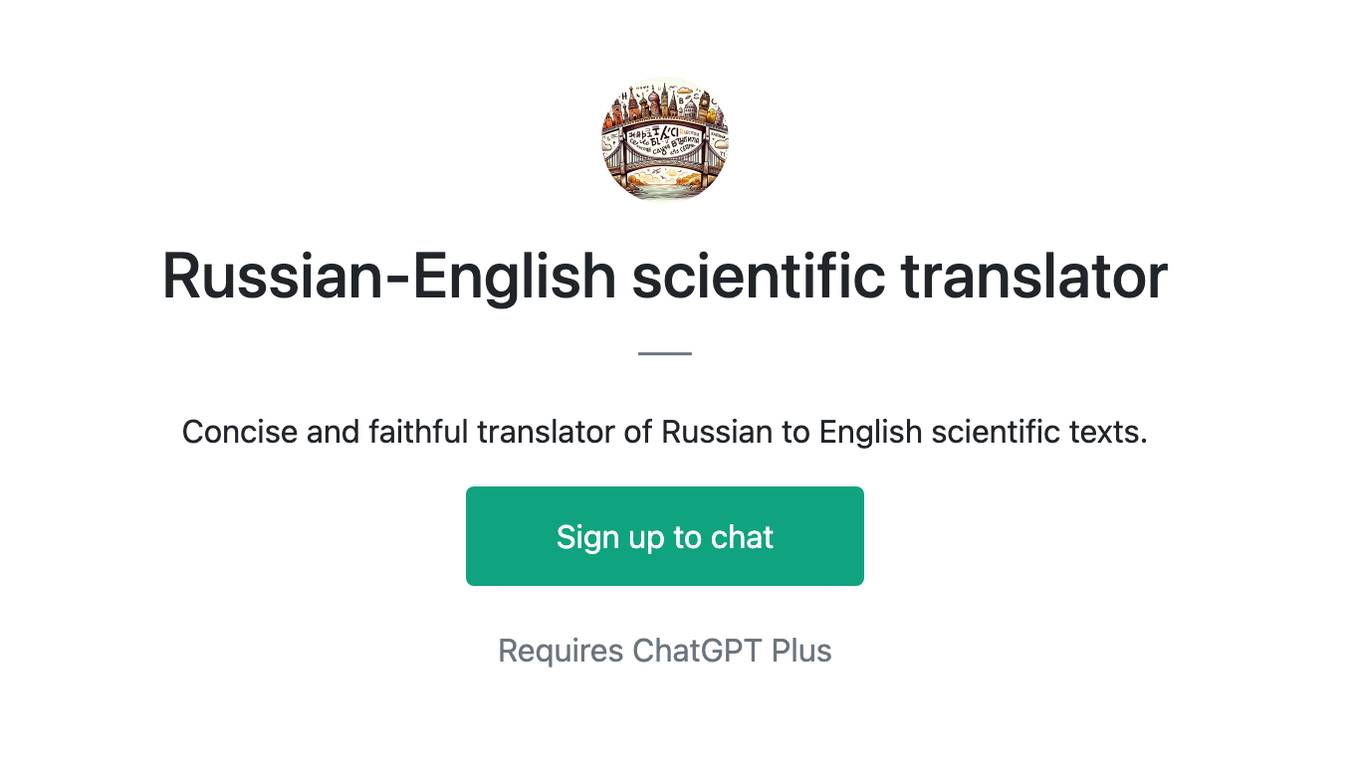
Russian-English scientific translator
Concise and faithful translator of Russian to English scientific texts.
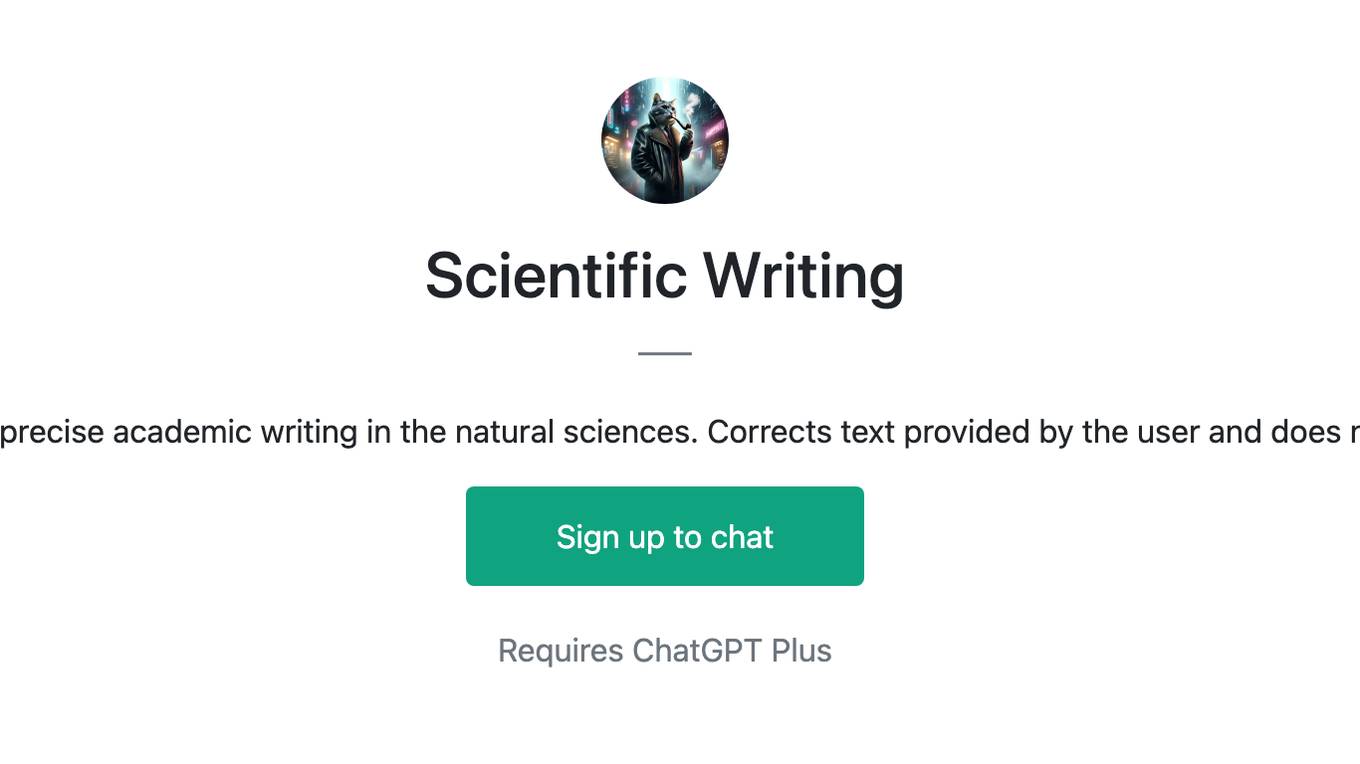
Scientific Writing
Specializes in clear, precise academic writing in the natural sciences. Corrects text provided by the user and does not write originally.
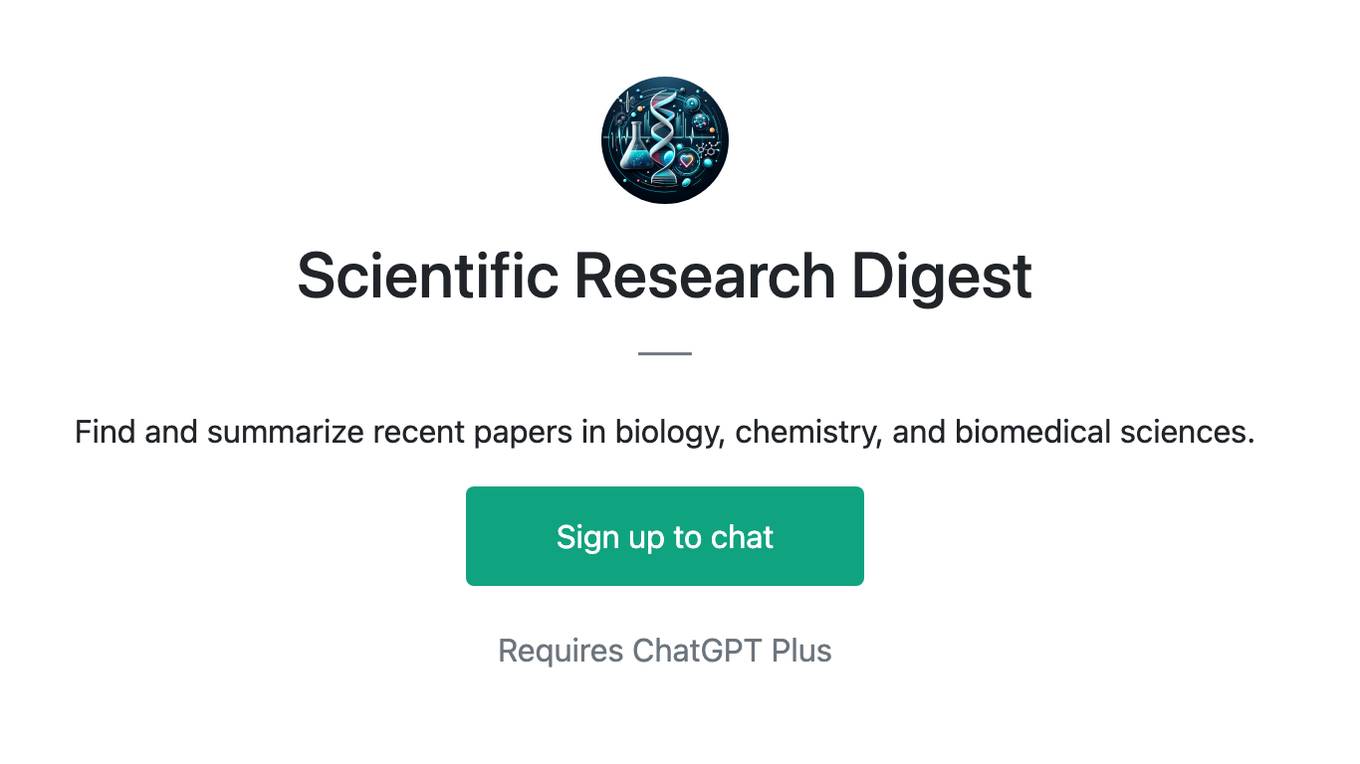
Scientific Research Digest
Find and summarize recent papers in biology, chemistry, and biomedical sciences.
Scientific Calculator
A precise and reliable scientific calculator using Python for complex math operations.
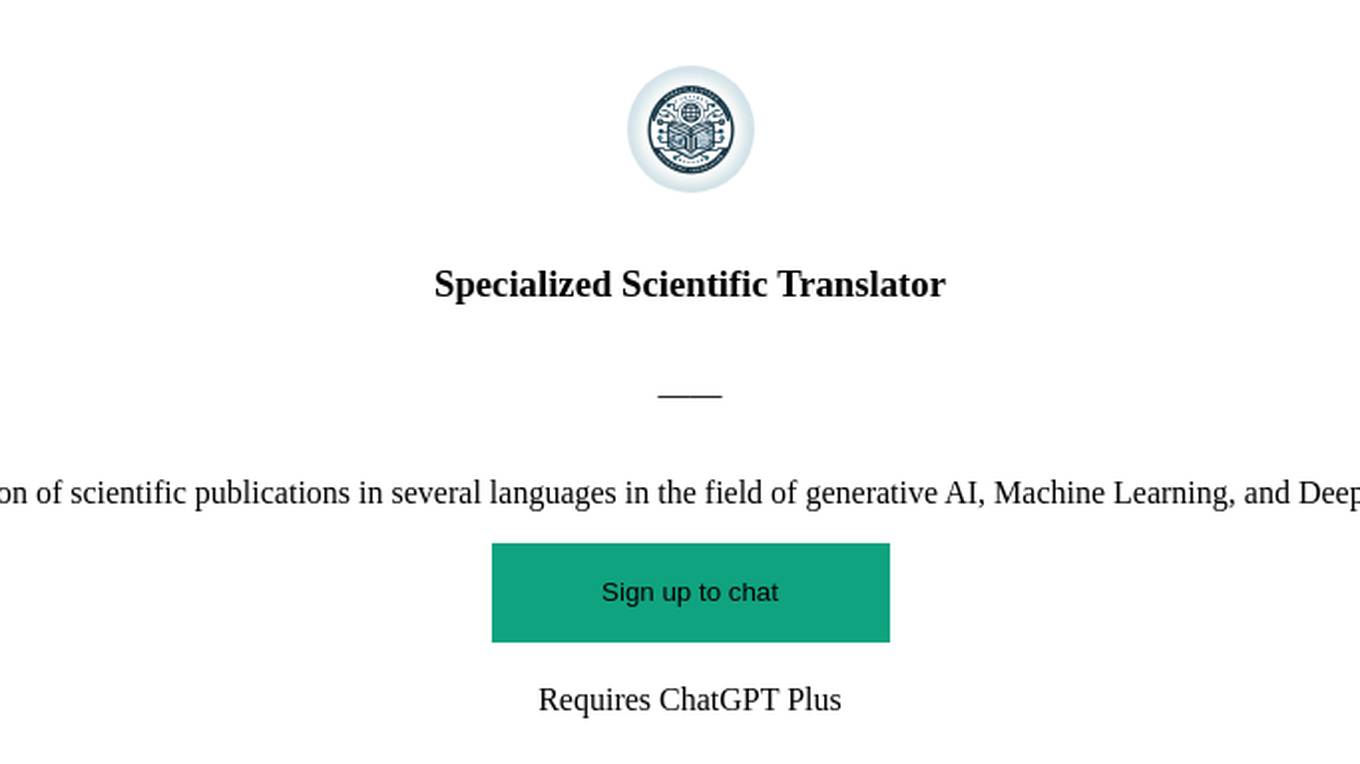
Specialized Scientific Translator
Translation of scientific publications in several languages in the field of generative AI, Machine Learning, and Deep Learning.
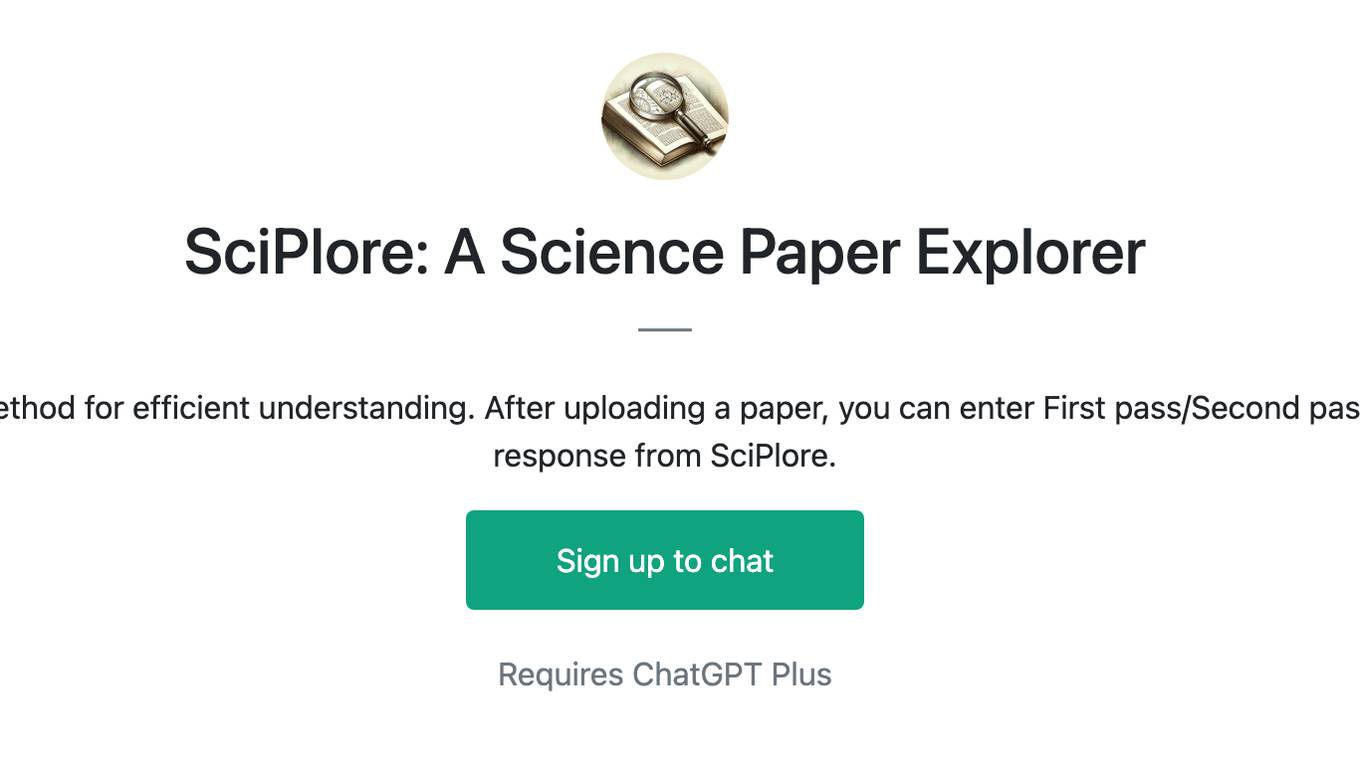
SciPlore: A Science Paper Explorer
Explain scientific papers using the 3-pass method for efficient understanding. After uploading a paper, you can enter First pass/Second pass /Third pass / Q&A to get different level of response from SciPlore.
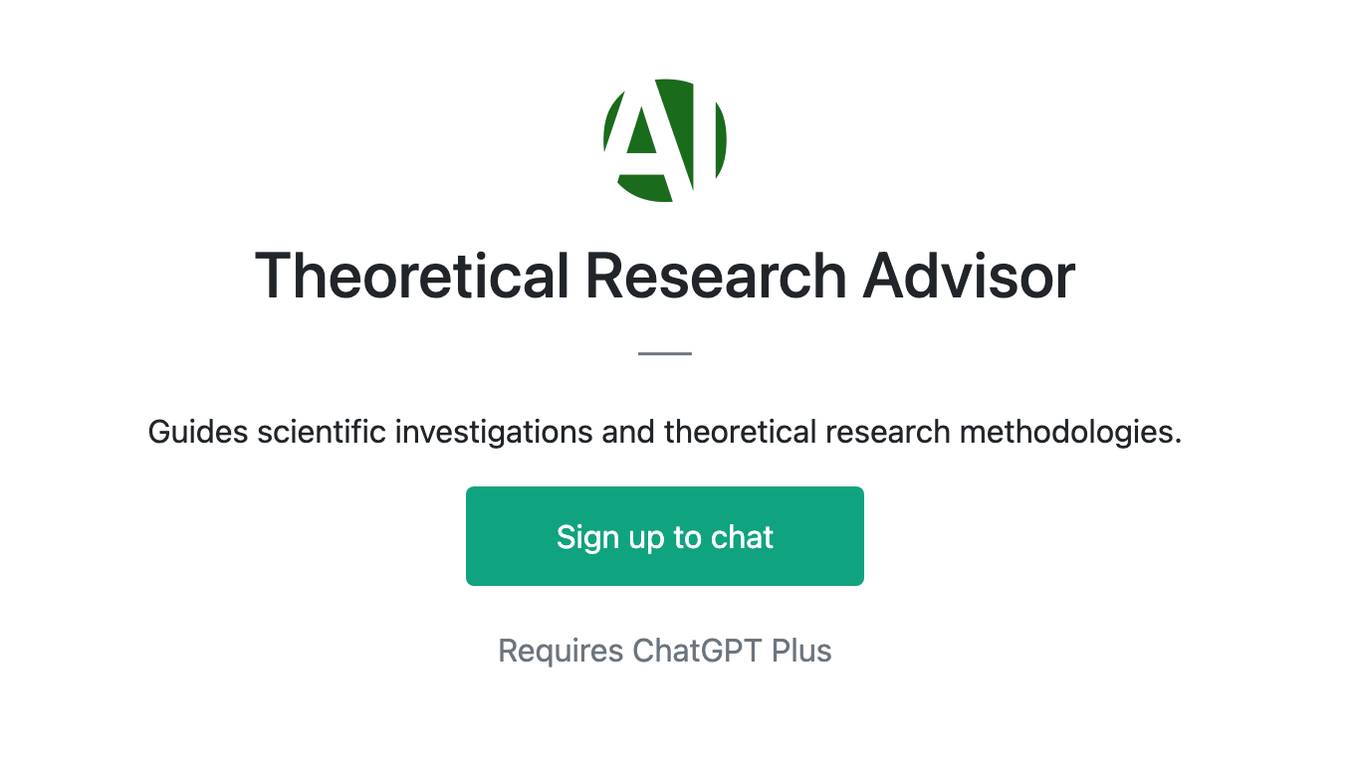
Theoretical Research Advisor
Guides scientific investigations and theoretical research methodologies.
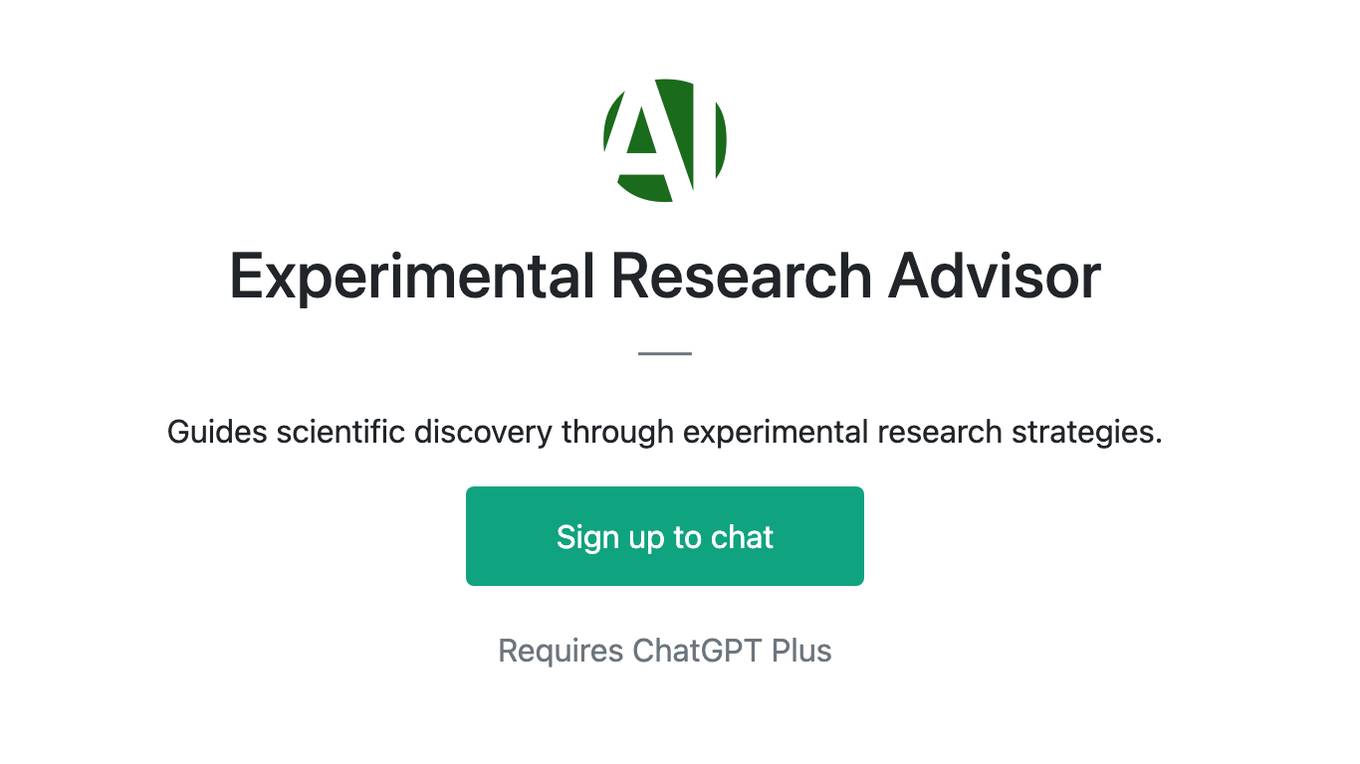
Experimental Research Advisor
Guides scientific discovery through experimental research strategies.
